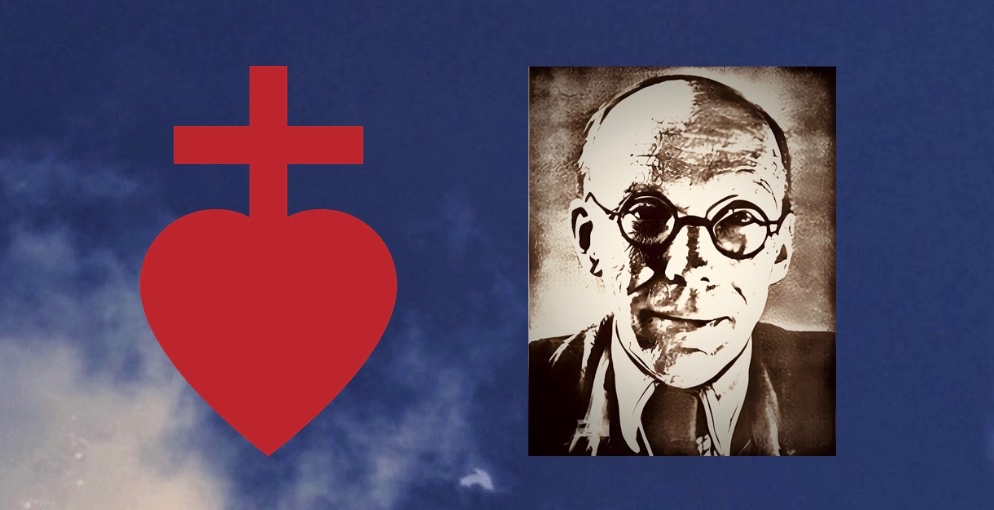
2023 Update:
Here is the first of a never-completed nine part series of musings on Valentin Tomberg, Catholicism, Rudolf Steiner and the world tragedy, written many years ago in 2011. In recently re-visiting it, for the first time in years, I have seen fit to rewrite it a little. But for the most part it remains as it was, even if today it seems to me very slightly crude and immature in places.
My more mature thinking on Tomberg is found in my books, key articles like this one and the YouTube videos you will see peppered through the series. Still I think there may be valuable material in this series not found elsewhere and For navigation purposes, we list and link the nine parts here:
- Valentin Tomberg, Catholicism and the Counter-Revolution—Pt. 1
- Valentin Tomberg, Catholicism and the Counter-Revolution—Pt. 2
- Valentin Tomberg, Catholicism and the Counter-Revolution—Pt. 3
- Valentin Tomberg, Catholicism and the Counter-Revolution—Pt. 4
- Valentin Tomberg, Catholicism and the Counter-Revolution—Pt. 5
- Valentin Tomberg, Catholicism and the Counter-Revolution—Pt. 6
- Valentin Tomberg, Catholicism and the Counter-Revolution—Pt. 7
- Valentin Tomberg, Catholicism and the Counter-Revolution—Pt. 8
- Valentin Tomberg, Catholicism and the Counter-Revolution—Pt. 9
And now back to 2011 — Roger Buck
This website has numerous sources of inspiration. Chief among these of course, is the Sacramental Encounter with Christ, which has afforded untold inspiration to my wife Kim and myself since the joy and miracle of our conversion.
But within that untold immensity, there is more, of course.
There are the life-changing experiences of Catholic France – and Paray-le-Monial most of all – from the years 2006-2008.
And there are of course, the influences of countless Catholic saints and writers. Those of St. Margaret Mary Alacoque, St Claude de la Columbiere, St. John Paul II, Benedict XVI, Hilaire Belloc, Charles A. Coulombe are a few that spring to mind …
And among these is Valentin Tomberg.
Who is Valentin Tomberg?
Now of course, a non-superficial answer to this question is to address imponderable mystery (as, of course, remains true for any man or woman).
But for the purposes of this website, it is best to say certain things unsaid before—in the context of a new multi-part series at this weblog.
Valentin Tomberg is the anonymous uthor of Meditations on the Tarot.
Valentin Tomberg before his death in 1973, was a Catholic convert who on some points, remained definitely less than orthodox.
Indeed he is likely to be seen as a heretic by some – and not without reason. This needs to be frankly admitted from the outset.
Despite this, Valentin Tomberg was, if not a Catholic Traditionalist (at least as that is often defined), then at very least, a defender of the Catholic Tradition of an extremely high order.
We have then a paradox. On the one hand, I could not blame any sincere Catholic for being suspicious of Tomberg. The reasons for this will become clearer, as this series proceeds.
Let us say for the moment, that even after his conversion to the Catholic Faith in the mid-1940’s, Valentin Tomberg wrote as though reincarnation possessed a certain reality—if not the entire fullness of truth. And this is not the only problem his writings pose for orthodoxy.
‘On the one hand’, I wrote. Can there even be ‘another hand’ – the scandalised faithful may ask?!
One purpose of this series will be to affirm that most definitely there is. Yet this website also aspires to represent Catholic Tradition. There will be nothing here to defend a doctrine of re-incarnation or any other teaching contrary to the Catholic Faith.
Indeed, my sincere belief is that modern efforts to militate against orthodoxy are causing far greater world suffering, than any of us can readily realise. And I pray dear Lector that you will find nothing like this at this site. I pray to be a faithful son of the Church, as Tomberg repeatedly encouraged his readers to be.
Alas, many of his readers miss these repeated encouragements. Interested as they are in his Hermeticism (a topic we mean to explore) they also miss his regular repeated criticisms of Hermeticism, such as this one combining both that criticism with his call to be faithful and obedient.
“Hermeticism is a badly-coined alloy of false religiosity with a false scientific spirit. …
Is the above-mentioned criticism valid?—Yes it is. It is well-founded, because … the Church is based on the three sacred vows —obedience, poverty and chastity—whilst we Hermeticists behave as pontiffs, without the sacraments and the discipline that this entails . . .
We do not want to obey . . . religious . . . discipline. At the same time, it is obedience or discipline which underlies the moral greatness of the Church.
Anonymous, Meditations on the Tarot, p. 190
Yes, many readers of Tomberg either miss such repeated admonitions—or else they try to re-interpret his call to the Church as some abstract entity.
Careful reading of Tomberg though indicates that by Church Tomberg meant above all the Catholic Church (though he also highly honoured the orthodox churches of the East).
This is evident from not only a consistently severe critique of Protestantism (whose roots are described as sin and heresy) but also unambiguous statements such as this:
The Catholic Church, being catholic or universal, cannot consider itself as a particular church among other particular churches, nor consider its dogmas as religious opinions among other religious opinions or confessions
Anonymous, Meditations on the Tarot, p. 89
Yes, Tomberg’s honouring of the Eastern churches should not deceives us into thinking he is calling for a wooly, universal church that embraces all confessions or none. For he is unusually severe towards Protestantism and even the Eastern churches are criticised for failing to honour Roman hierarchy.
Yes, careful, unprejudiced reading of Meditations on the Tarot will reveal an author who was absolutely sincere in this call:
May the Holy Scriptures be holy for us; may the sacraments be sacraments for us; may the hierarchy of spiritual authority be the hierarchy of authority for us.
Anonymous, Meditations on the Tarot, p. 410
And so, despite apparent strange anomalies, Tomberg nonetheless remains a defender of the Catholic Tradition of a very high order.
I will just say at this point, that I am hardly the only one to hold this apparently bizarre position. In fact, I would appear to be in distinguished company. There is one report for example, that as cardinal, Joseph Ratzinger authorised the Russian publication of Meditations on the Tarot.
We mean to address all this later in this series and also to ponder why Joseph Cardinal Ratzinger might favour a book called Meditations on the Tarot, a book which speaks about reincarnation as real, if not necessarily fully true. (It might be also noted that in Meditations on the Tarot, Valentin Tomberg firmly defends the Church as right in not promoting a doctrine of reincarnation.)

And in terms of why we maintain that Meditations on the Tarot constitutes a profoundly important defense of the Catholic Faith, we will also consider the New Age movement. This constitutes a far greater danger to Christianity than is generally realised.
The notion will be advanced here that Valentin Tomberg was very conscious of this danger indeed and that Meditations on the Tarot forms a powerful counterweight and warning against much that prevails within the New Age milieu.
In this first part, I would like to say the following about this series. The series is being written under more pressure than I would like. I am therefore giving myself permission to be rather sloppier and less ordered than I would like. Later I hope to collect, polish and organise these thoughts in a major article for the site.
The series will be many parts and also not necessarily appear consecutively – though I feel more dedicated to this series than any attempted here so far.
I will be pouring my lifeblood into this …
Foreword for Monarchy by Roger Buck
Buying Books at Amazon Through These Links Gives Us a Commission. This Supports Our Apostolate. Thank You if You Can Help Us Like This!





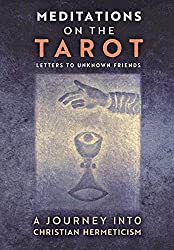
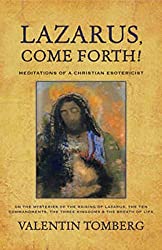
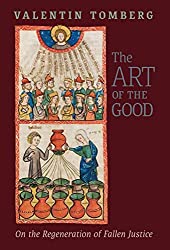
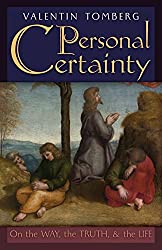
Comments
comments are currently closed
15 responses to “Valentin Tomberg, Catholicism and the Counter-Revolution—Pt. 1”
[…] Should you wish to know more about this paradox or the book’s unorthodox elements, there is a weblog series about this starting here … […]
[…] I cannot unpack this much further now. My energies must be very with the new series on Valentin Tomberg (starting here). […]
[…] Post-Amazon Afterword: To the above, I need to add that like Meditations on the Tarot, this book contains elements, which are less than orthodox. The book then is both less than traditional and extremely traditional – at one and the same time. There is a discussion of this paradoxical situation in a series at my weblog starting here. […]
[…] Valentin Tomberg, Catholic Tradition and the Counter-Revolution This entry was posted in Roger's Weblog and tagged Capitalism, environment, Valentin Tomberg. Bookmark the permalink. Post a comment or leave a trackback: Trackback URL. « From Ordinary to Extraordinary Acceptable Loss? » […]
[…] Valentin Tomberg, Catholic Tradition and the Counter-Revolution […]
[…] Valentin Tomberg, Catholic Tradition and the Counter-Revolution […]
[…] Valentin Tomberg, Catholic Tradition and the Counter-Revolution […]
How do you deal with Tomberg’s belief in reincarnation? Do you think one can be a “good” Catholic with such a belief? (I’m speaking as a non-Catholic with an interest in Catholicism.) Thanks.
He was wrong on that one…we have one life unto eternity. (I know you were asking Roger but I thought I would put my two cents in) By the way, I am not a Catholic either. I used to be very sympathetic to the idea but I a number led me to believe that the doctrine of reincarnation is false.
Edwin, Agnikan … Thank you.
First I hope that you will not mind that I moved both your comments to a different blog post – where they fit better. If you scan to the top of the page where they have now been relocated, you will see a little that is relevant to my attitude here.
But more needs to be said, so I will at least take a start now.
First Edwin, I am grateful for your testimony – because it shows that one can deeply appreciate Tomberg without needing to follow everything he says.
I myself would rather be faithful to the Church than uncritically follow any one man, no matter how brilliant.
At any rate, Tomberg’s perplexing and far from clear statements regarding reincarnation are hardly a primary or even a secondary or indeed tertiary theme in MotT. One can absorb the vast Catholic and Christian wisdom here and ignore these completely.
However this does not solve the problem!
I aspire to be faithful to the Church – I think Agnikan I prefer the term faithful Catholic to ‘good Catholic’ – and yet I am promoting a book with heterodox material within it, even if it is minor compared with the overriding faithfulness to the Catholic Tradition elsewhere in the book.
The reasons for this are complex. As I point out in a piece that is still unfinished but will hopefully appear before too long, it is not only such distinguished figures as Hans urs von Balthasar and Robert Spaemann who support MotT but according to one report then-Cardinal Ratzinger authorised the Russian edition himself.
And there is still more that leads me to suspect that the Holy Father cherishes Meditations on the Tarot.
As I indicate, why I say this will be posted when my piece is finished. This will not be until after Easter at the earliest, when I hope this site will resume in earnest.
All that being said, I would like to note that for all the perplexing nature of what Tomberg says regarding the theme, he nevertheless says that reincarnation is less than fully true, that the Church was entirely right to refuse it as a doctrine and in the Letter on Death he implores the reader – if I recall rightly that word implore is stressed – Yes he IMPLORES the reader to think very seriously indeed before speaking about reincarnation – because promoting belief in such is dangerous …
So: none of this is clear-cut. Tomberg is NOT proposing a doctrine of reincarnation.
Still as a Catholic who aspires to be faithful to the Church, it causes me real suffering to openly promote a book with this content – however relatively minor that content may be.
I suspect there may be more to say in time – but that seems what I can manage in a comments box for now
I am grateful for all comments and although new posts will not appear till after Christmas, I will be soon replying to other unanswered comments and any new comments which come in.
There is a question here of different kinds of fidelity. To Tomberg and the world of ideas, inspirations and practices he introduced us to; to the Church and what it has responsibility to teach; and to the Truth in the largest sense of the word. Naturally, if you have fidelity to all three you would like to see a perfect harmony between them.
So one could propose:
1. The essential elements of TRUTH are identical in its most perfect form with what the Church teaches.
2. By using the word “essential” I seek to indicate there may non-essential TRUTHS that as yet are not incorporated into Dogma.
3. The are things in the spiritual life that may be essential to some but not essential to others. So they occupy a place between “essential” and “non-essential.” For example, practices and experiences with the Inner Tree of subtle energy channels, centers and gates may be essential in the spiritual growth of one but not another.
4. Christian dogma usually concerns itself with TRUTHS essential to all. The Church is most responsible to maintain this over all else. However, it cannot afford to be silent on truths of category three as it may be relevant to how Christians are to process these experiences in light of Christian faith.
5. Ultimately all truths can be seen to be oriented in Light of Christian faith. The work of Christian Hermeticism is bring these truths into harmony or relationship to Christianity like an arcana, a “ferment” or “enzyme.”
6. While points of compatibility or integration should be sought the possibility exists that some “truths” may not be at all if inherently in conflict with Christianity so the possibility to reject them must be realized in rare cases.
Thank you, Edwin.
I feel there is much worth pondering in what you say – although I find it difficult to go into it completely point by point, right now
But I deeply respect your aspiration to three kinds of fidelity – which can be tough.
I am reminded of a priest who as a young man had been in an SSPX seminary, before its bishops were excommunicated.
He had left for a lonely, persecuted life upholding the tradition as a diocesan priest. And he spoke to me of the need for fidelity of three kinds which were frequently in conflict: his bishop, the Pope and the tradition of the Church …
I saw his threefold intention as beautiful, even heroic.
More specifically to what you say:
Dogma relates to the most central – essential as you put it – important truths of the Faith that must be handed on. And as Tomberg emphasises, these are what are necessary for salvation.
Like you, I trust that there are manifold truths which are less essential for salvation, but truths which as you say the Church still needs to express/address. And as you say, these may be tremendously important for certain individuals.
In my own case, Providence led me to Paray-le-Monial where the Revelation of His Most Sacred Heart occurred. The apparitions are not a matter of dogma, but what issued forth from these apparitions has been of crucial importance to my whole life.
It was also in the profound life changing atmosphere that still breathes in Paray, that I saw more sharply than ever how I was called to renounce my formerly more liberal Catholicism, which at least in my case represented lack of fidelity to the Church and indeed which fidelity Tomberg was also calling me to.
I tend to feel Providence was working out my own Salvation through the deeper conversion that happened through Paray and yet we are talking here about matters that are less essential, as you say, than dogma – yet essential to my own individual way.
Warm thanks again for commenting – and just for being here at this site. It is much appreciated.
I regret my responses to you (and others I still have not responded to) have taken so long – but I think these delays are about to change, as this site comes back to life after Easter.
(I also have some upcoming not quite finished blog posts which relate to what I have just said regarding Tomberg and the Sacred Heart).
[…] final note about Tomberg, concerning the long series started here on Tomberg and the Counter Revolution. This series will continue. I envisage dozens of parts eventually. But I fear it’s going to […]
[…] thinking of Valentin Tomberg, which we are exploring at this website. As we are advancing in a new series, Tomberg clearly drew on much that Potter is evoking […]
[…] However, unpacking this curious treatment is far beyond the scope of our present post. (We have dealt with it a little bit further in a series of posts on Valentin Tomberg starting here). […]